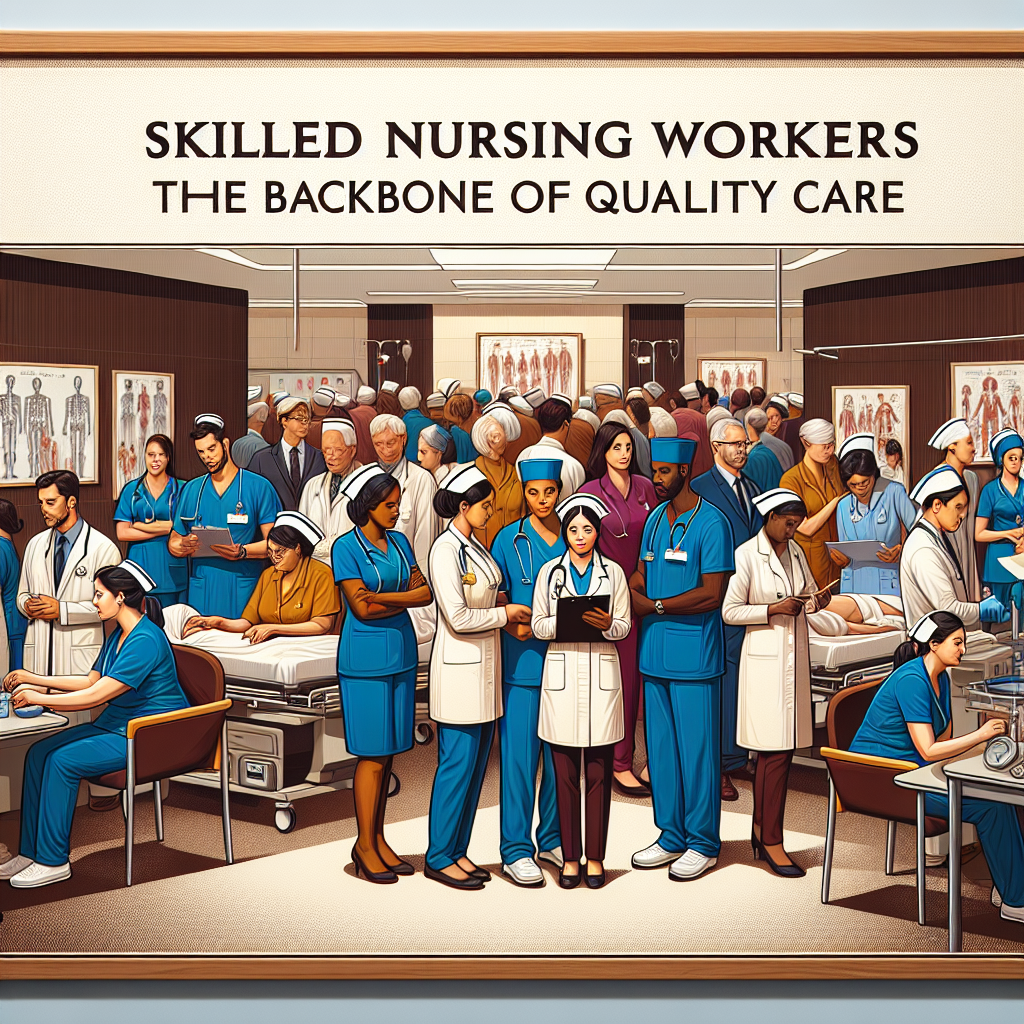New York, NY—In the complex ecosystem of healthcare, skilled nursing workers stand out as the pivotal force behind delivering quality care to patients in diverse settings, ranging from long-term care facilities to bustling metropolitan hospitals. Their role, often underrated, is crucial in ensuring that patients receive the compassionate and expert care they need for their recovery and well-being.
Skilled nursing workers, encompassing a range of professionals from registered nurses (RNs) to licensed practical nurses (LPNs) and nursing assistants, are the heartbeat of patient care. Their expertise stretches across a vast array of patient needs, from acute care and rehabilitation to managing chronic conditions and providing end-of-life support. A recent study published by the American Journal of Nursing highlighted that patient recovery rates improve significantly with higher levels of staffing by skilled nursing professionals, illustrating the direct impact these workers have on healthcare outcomes.
One nurse, Sarah Lin, a seasoned RN with over a decade of experience in a New York City hospital, shared, “Every day presents a new challenge, but knowing that I’m making a tangible difference in someone’s life is what keeps me going. It’s more than a job; it’s a calling.” Statements like Lin’s underscore the dedication and passion that skilled nursing workers bring to their profession, despite the demanding and often stressful nature of their work.
The demand for skilled nursing professionals is on the rise. The Bureau of Labor Statistics projects that employment for registered nurses alone is expected to grow 9% from 2020 to 2030, faster than the average for all occupations. This anticipated growth is partly driven by an aging population, increasing rates of chronic conditions, and the need for more sophisticated healthcare services.
However, the sector faces challenges, including staffing shortages, burnout, and underfunding in certain settings. These issues not only strain the workers but also potentially compromise patient care quality. Addressing these challenges is imperative to ensure that the backbone of healthcare—its skilled nursing workers—can continue to provide the high-quality care that patients expect and deserve.
Innovations in healthcare, such as technology integration and policy reforms aimed at improving working conditions and incentives for nursing professionals, could be pivotal in enhancing the attractiveness of the profession. Moreover, public and private sector investments in nursing education and workforce development are critical in nurturing the next generation of skilled nursing workers.
As healthcare continues to evolve, the significance of skilled nursing workers remains undiminished. Their unwavering commitment to patient care, backed by their expertise and empathy, positions them as indispensable in the pursuit of health and wellness for individuals and communities alike. The future of healthcare depends on recognizing and reinforcing the role of these professionals as the true backbone of quality care.


